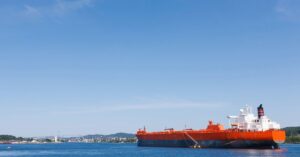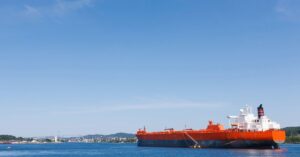
HMM To Expand Its Algeciras Terminal As Transhipment Hub
July 3, 2025
UAE Ship Arrives At Ashdod Port With 2500 Tonnes of Aid For Palestinians
July 3, 2025

Germany has announced that, along with Sweden, it will ask ships to provide information about their insurance coverage, joining other Baltic and Scandinavian nations and the EU to enforce strict regulations on Russian ships.
Germany’s Foreign Minister, Dr. Johann Wadephul, said the new inquiries will intensify the coordination with the allies and partners and increase pressure on Russia.
From July 1, 2025, onwards, the German authorities will ask tankers about their insurance coverage to protect against oil pollution, especially focusing on ships off Fehmarn, a German island alongside the major shipping lane, just 12 miles across to Sweden.
Germany is not trying to stop the ships for inspections like Estonia and Finland. However, the ships could come under the list of those that could be sanctioned in the future.
In 2025, Germany detained the tanker Eventin after it blacked out and had to be rescued. It later seized the vessel and its cargo after stating it was a shadow fleet vessel that had violated the regulations.
Sweden has also stated its plans of increasing surveillance of suspected ships to target the shadow fleet of tankers, which operate unregulated, flouting sanctions and are old and obsolete, creating risks of maritime accidents and oil spills.
Recently, Denmark also tracked and reported a shadow fleet vessel which had entered and left the Baltic, though it did not detain the ship, due to the legal complexities of a seizure.
Russia said that it will protect the tankers in its oil trade. In May, a Russian warplane entered he airspace of Esonia as the latter was confronting a suspected tanker.
At the United Nations, Russia has called these acts of the EU and other countries piracy and demanded adherence to maritime laws of free and open navigation, while nations have cited incidents of subsea cable cuts and dangers of pollution from the old and unsafe tankers used for moving russian crude across the globe.
The EU and the U.K have been quite active in imposing and expanding sanctions against the shadow fleet and their crackdown on the Russian energy industry. Around 800 tankers are involved in moving Russian oil in violation of the G7 price cap on Russian crude.
Source: Maritime Shipping News


